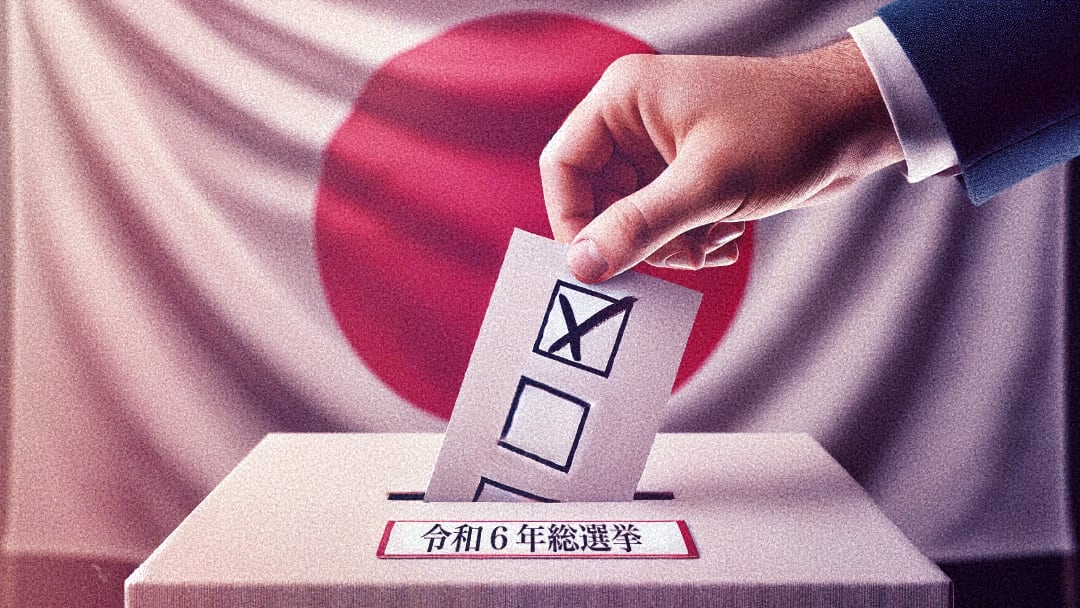Japan holds an election that could shape the (uncertain) future of Ishiba and the country
Tomorrow Japanese voters will pick members of the House of Representatives in an early election. The ruling majority is at risk after months of corruption scandals and poor showing in public opinion polls. Inside the LDP, a new leadership contest is developing. Opposition parties are not likely to back a coalition government with the LDP.
Tokyo (AsiaNews) – Japan is set to vote tomorrow to renew the House of Representatives after Prime Minister Shigeru Ishiba called an early election.
Mr Ishiba, who took office on 1 October, wants a fresh mandate and needs to shore up support for his Liberal Democratic Party (LDP) after months of corruption scandals and declining support.
This is a gamble since voters now have a chance of picking a new kind of majority, different from the one currently in power.
Some 105 million Japanese are eligible to cast their ballot for 465 members of the lower house of the National Diet. At least 233 are needed to secure a majority.
In the last election, the majority coalition led by the LDP took 276 seats, thanks to a deal with Komeito, a Buddhist-centred party linked to the Soka Gakkai group, which elected 32 members.
This alliance has seen ups and downs at critical moments but the LDP was able to contain them because of its solid majority, but this time, it cannot take this for granted because of declining popular support.
If this is the case, Ishiba's party might need another ally, like the Democratic Party for the People or the Japan Innovation Party to stay in power.
For Koya Miyamae, a senior economist at SMBC Nikko Securities Inc., one possibility is that Ishiba might "resign immediately to take responsibility" for the election, should he fail to secure a "coalition majority."
Most likely, if the current governing bloc lost its majority in the lower house for the first time since 2009, the outgoing prime minister would start a phase of negotiations with opposition leaders to win them over after the election.
Recently, the LDP general secretary and number two of the party Hiroshi Moriyama explained that, regardless of the result, it will be necessary to “engage in positive discussions with political parties that share the same policies to develop the country."
In reality, the outlook appears grim because most opposition parties are reluctant to serve as the LDP’s crutch. Instead, earlier this month they presented a no-confidence motion against Ishiba and his cabinet.
“It is basically impossible to form an alliance with the party targeted by the motion,” said Yoshihiko Noda, leader of the Constitutional Democratic Party of Japan (CDPJ), who is highly critical of the corruption scandal that has engulfed the LDP.
At first, according to the polls by the main media outlets, Ishiba seemed to be favoured for the post of prime minister and sought to reverse, thanks to such personal support, the declining popularity for his party.
However, according to the latest survey results published by Kyodo News, Komeito, the LDP’s main ally, could lose badly, depriving the ruling coalition of a majority, a sign of loss of trust among voters.
In addition, in some statements, Ishiba has often wavered on some issues and shown inconsistency on economic and security policies since he took office, raising doubts among voters about his leadership.
Meanwhile, the latest surveys suggest that the main opposition party, the CDPJ, recently taken over by former Prime Minister Yoshihiko Noda (in office during the Fukushima tragedy in 2011), could see its seat count go from 98 to 140.
For now, all eyes are on tomorrow evening, and the following days, for the outcome of the polls, but more than one independent expert believes that the current prime minister could suffer a major setback.
According to some reports, Sanae Takaichi, a former Minister of State for Economic Security and a Shinzo Abe loyalist, is working behind the scenes to take over the LDP leadership in case of poor showing by Ishiba amid uncertainties and tensions, both domestic and international, from Asia-Pacific to the Middle East.
31/10/2024 13:59
11/10/2025 14:58
30/10/2021 13:19
11/07/2022 14:40







.png)










